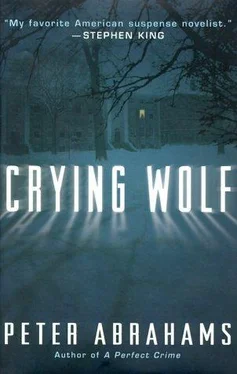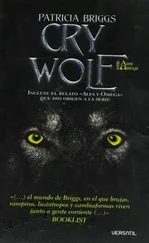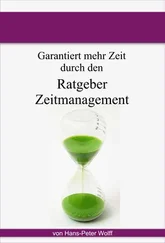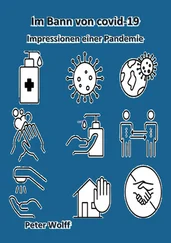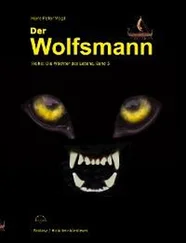Peter Abrahams - Crying Wolf
Здесь есть возможность читать онлайн «Peter Abrahams - Crying Wolf» весь текст электронной книги совершенно бесплатно (целиком полную версию без сокращений). В некоторых случаях можно слушать аудио, скачать через торрент в формате fb2 и присутствует краткое содержание. Жанр: Триллер, на английском языке. Описание произведения, (предисловие) а так же отзывы посетителей доступны на портале библиотеки ЛибКат.
- Название:Crying Wolf
- Автор:
- Жанр:
- Год:неизвестен
- ISBN:нет данных
- Рейтинг книги:3 / 5. Голосов: 1
-
Избранное:Добавить в избранное
- Отзывы:
-
Ваша оценка:
- 60
- 1
- 2
- 3
- 4
- 5
Crying Wolf: краткое содержание, описание и аннотация
Предлагаем к чтению аннотацию, описание, краткое содержание или предисловие (зависит от того, что написал сам автор книги «Crying Wolf»). Если вы не нашли необходимую информацию о книге — напишите в комментариях, мы постараемся отыскать её.
Crying Wolf — читать онлайн бесплатно полную книгу (весь текст) целиком
Ниже представлен текст книги, разбитый по страницам. Система сохранения места последней прочитанной страницы, позволяет с удобством читать онлайн бесплатно книгу «Crying Wolf», без необходимости каждый раз заново искать на чём Вы остановились. Поставьте закладку, и сможете в любой момент перейти на страницу, на которой закончили чтение.
Интервал:
Закладка:
“But it’s not just a matter of grades and test scores nowadays,” said Miss Brown. “Nat had his basketball, and his coaching Little League, and the job at the mill.”
“The mill? That counts?”
“It all adds up,” said Miss Brown. “We’re talking about-”
“-the whole package,” said Mrs. Smith. Miss Brown narrowed her eyes at Mrs. Smith but said nothing.
Mr. Beaman drained his cup, studying Nat over its rim. It was very quiet for a moment, one of those small-town moments, with no sound at all but that of a jet plane, almost inaudible. Nat caught his mom studying him too, as though she were trying to figure out some stranger. He grinned at her and she grinned back. Her upper left front tooth was slightly chipped, just like his.
“Why don’t you fetch the brochure to show Mr. Beaman, Nat?” she said.
Nat went into the house, one of the neighbors patting him on the back as he mounted the porch stairs. “Go get ’em.”
The Inverness brochure lay on the kitchen table beside the sheets of calculations. The picture on the front showed well-dressed students and a professor sitting under a red-leafed tree. Nat gazed at it, a beautiful photograph, very clear. The professor had tassels on his loafers and so did two of the boys and one girl. He heard Mrs. Smith through the window screen: “… best boy ever came out of this town.” Nat left the brochure on the table, went out of the house by the front door.
He stood at the foul line in the driveway. The foul line itself was invisible, had faded away years ago, but his feet went to the right spot; the same way he could walk around the house in the dark. He picked up the ball, eyed the back of the rim hanging on the backboard over the garage door, shot. Missed. Bounced the ball a couple of times. Shot. Missed. Nat took one hundred free throws a day, every day. Shot. Missed. Even the day his father left. Shot. Missed. He had a good shot if open, and was not bad at getting open. He’d been the shooting guard for Clear Creek High since sophomore year. Shot. Hit. And made second-team all-star in the Tri-County League this year, and honorable mention in the region. Shot. Missed. Good enough to play for Arapaho State-the coach had already called. Probably good enough to play for Inverness as well: it was only Division III. He bounced the ball a few times; not looking at it, not really bouncing it anymore. The ball more or less bounced itself, almost shuttling on its own between his hand and the pavement. Now when Nat looked up, he was aware of an invisible current of air, tube-shaped, flowing up from his hand to the basket. All he had to do was bend his knees and boost the ball up into that current. Shoot. Hit. Shoot. Hit. Shoot. Hit. He was an 81 percent foul shooter in competition, and here in the driveway he had once made a hundred straight. Forgetting the cookout, the brochure, the essay, aware only of the invisible air current and the ball that had to be tossed into it, Nat hit shot after shot. Unconscious was what they called it. He became a cog in a machine consisting of ball, himself, air current, basket. The other parts of the machine did most of the work, leaving his mind free to wander. It wandered back to those baseless mountaintops in the sky, and suddenly he had his metaphor: they were like sails of ships whose hulls had sunk beneath the horizon. Not that Nat had ever seen sailing ships on the horizon-he’d laid eyes on the ocean only once, from a plane, when his mom’s sister, who lived in San Bernardino, was in the hospital-but he remembered a description of that effect from his reading.
Nat made twenty-five free throws in a row before emerging prematurely from unconsciousness, emerging the moment he remembered he wouldn’t be playing at Inverness even if he could make the team: he’d have to work after class. He missed the next six, then hit a few, missed one, hit some more, missed some more. The invisible current of air was gone, or flowing elsewhere. He made sixty-eight out of a hundred, the lowest in years, maybe ever. As he put up the last shot a quotation drifted into his mind: Ambition should be made of sterner stuff. Antony’s speech at Caesar’s funeral, act 3, scene 2. The ball rattled off the rim. Behind him a car door slammed.
He turned to the street, and there was Patti, climbing out of her father’s pickup. Her father beeped and drove away. Nat saw they already had an Arapaho State sticker on the back window; Patti was starting there in the fall. The ball rolled toward her down the driveway. She let it go, which wasn’t like her at all, maybe didn’t even see it; normally she’d have picked it up and tried to dribble around him.
Patti had the paper in her hand. She raised it, but only a little. It flapped back down at her side, as though very heavy. “Nat?”
“Hi.”
“You’re in the paper.”
“Yeah.”
“Cool.”
“Thanks.”
“You always were a good writer.”
“I don’t know about that.”
Nat heard Mrs. Smith laughing in the backyard. Patti’s face paled several shades.
“A good everything.”
“Hey, come on.”
“Sorry,” she said. Pause. “Nat?”
“Yeah?”
“Does… does this mean…?”
“It looks like it,” Nat said.
Patti nodded. “Con… congra-” She started crying before she got the full word out.
Nat went to her, put his arms around her. “It’ll be all right,” he said.
She shook in his arms. “No, it won’t. You’ll forget all about me.”
“That will never happen.”
Patti cried. Over the top of her head, Nat saw the paperboy, now off duty, bicycling up the street, baseball glove hanging on the handlebar. Nat knew him, the second baseman on his Little League team, the smallest player and the best. The kid grinned, started to wave; then saw what was happening, looked alarmed, and pedaled off quickly, head down.
“You’ll meet all kinds of girls, prettier than me.”
“No.”
“Prettier and smarter.”
Nat shook his head. Patti wet his shirt with tears. “And richer,” she said. “I hate Mrs. Smith.”
Nat held her close. His mind fed him a view from high above: he and Patti in the driveway, the basketball on the grass, the folks in the backyard, the town mostly hidden by its trees, everything tiny. He didn’t know what to say to her.
That night Patti went to bed with him for the first time. They’d come close before but she’d always held out, not quite ready. After-in her bedroom, her dad in Denver at his brother’s-she didn’t cry at all. She said: “What were we waiting on?” Nat almost told her he loved her then. It was probably the right thing to do, but he still wasn’t sure he really did. He ended up holding her tight instead.
There were plenty of tears in the weeks that followed.
O ne funny thing about that mental bird’s-eye view. At the end of the summer, when Nat flew out of Denver-second time on a plane-he looked out the window and saw his town, just as he’d imagined it on the Fourth of July. The mill, the high-school fields, the main street, even his street, even his house and the tiny backyard: he saw it all. No one in the backyard, of course. His mom, Patti, and Mrs. Smith would barely be out of the airport parking lot. Nat was thinking about what that drive would be like when, far below, a lake went by. There was no lake in his town. He’d been looking at someplace else.
2
All journeys fall into one of two categories, to home or from home, each unsatisfactory in its own way.
— From Professor Uzig’s welcoming remarks, Philosophy 322Freedy heard a man’s voice from inside the house: “Better put your bathing suit on. The pool boy’s out back.”
Freedy stared up at the house, saw nothing but his own reflection in the glass sliders. He looked buff, ripped, diesel, a fuckin’ animal (except for the intelligence in his face, not visible in the distant reflection, but he knew it was there). The intelligence in his face-according to his mother, he had eyes like the actor, name escaped him at the moment, who played Sherlock Holmes in old black-and-white movies-that intelligence was what separated him from all the other fuckin’ animals out there and made him more of a lady’s man. Women liked brains, no getting around it. Brains meant sensitivity. For example, floating in the water near the filter was a little furry thing. Poor little fella, you could say to some woman who happened to come by the pool. That was all it took: sensitivity.
Читать дальшеИнтервал:
Закладка:
Похожие книги на «Crying Wolf»
Представляем Вашему вниманию похожие книги на «Crying Wolf» списком для выбора. Мы отобрали схожую по названию и смыслу литературу в надежде предоставить читателям больше вариантов отыскать новые, интересные, ещё непрочитанные произведения.
Обсуждение, отзывы о книге «Crying Wolf» и просто собственные мнения читателей. Оставьте ваши комментарии, напишите, что Вы думаете о произведении, его смысле или главных героях. Укажите что конкретно понравилось, а что нет, и почему Вы так считаете.
